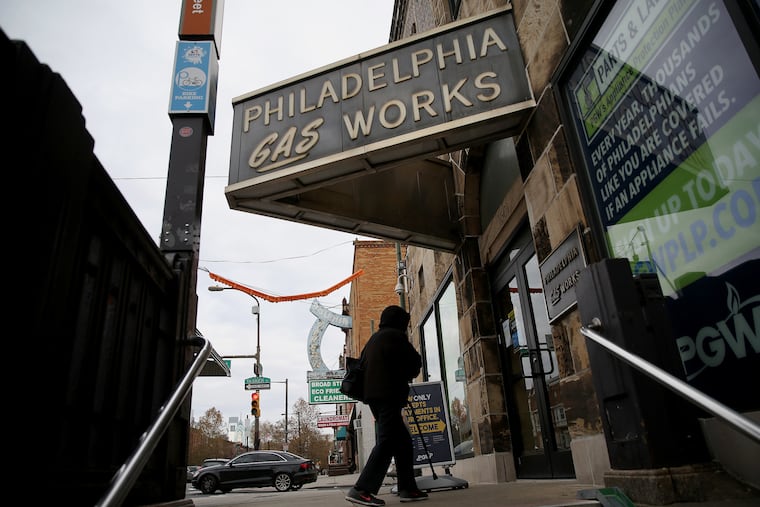Business as usual for PGW is bad for consumers, the climate, and even PGW | Editorial
At the city level we need to study alternatives, and at the state level make sure Philadelphia is not preempted.

Philadelphia Gas Works is the nation’s largest municipal gas utility — and it needs some major updates.
In its current form, the 185-year-old-utility is challenged on multiple fronts. Philadelphians are some of the most “energy burdened” city dwellers in the country, with 25% of all low-income households paying 19% or more of annual income on their utility bills. Black and Latino households are more likely to be energy burdened than white households. Over time the burden will get only worse. Just last fall, Pennsylvania approved a 5.2% increase to PGW’s rate.
» READ MORE: Can Philadelphia’s gas utility survive in a climate where fossil fuels are shunned?
Despite the heavy burden on consumers, PGW has plateaued financially. As appliances became more efficient, summers warmer, and more buildings are fitted with electric lines instead of gas pipes, the demand for gas has decreased — and PGW retail gas sales have stayed flat. Since 2013, PGW has also been selling excess liquefied natural gas (LNG) to private buyers. In 2018, City Council approved a $60 million LNG plant in South Philadelphia for PGW to expand its LNG venture through a private-public partnership.
But continued reliance on fossil fuels for revenue goes against our city’s climate change imperatives. In January, Mayor Jim Kenney announced Philadelphia’s commitment to achieving carbon neutrality by 2050 in alignment with the Paris Agreement. The science is clear that achieving this goal is necessary, and big steps toward it must happen this decade. And major organizations like the International Energy Agency and the United Nations acknowledge that doing so requires phasing out reliance on fossil fuels, including natural gas.
That means PGW and the city need to begin transitioning away from business as usual now.
» READ MORE: Fracking ban in Delaware River Basin is a historic win, but it’s time to look downstream | Editorial
One promising start: The city’s Office of Sustainability is completing a study about what PGW could do with its 6,000 miles of gas mains if not transporting natural gas. There are no simple fixes and a lot of competing goals to balance: emissions, revenue, costs for customers, and job security for 1,600 city employees. Christine Knapp, the director of the city’s Sustainability Office, hopes that the study (for which draft materials have been made public) will be completed in the upcoming weeks. PGW has committed to at least one pilot.
These analyses are crucial first steps to lay out the costs and benefits of various alternatives to current gas usage such as renewable natural gas from landfills.
Meanwhile, at the state level, it’s critical that representatives oppose Harrisburg’s effort to tie Philadelphia’s hands. In February, State Sen. Gene Yaw introduced legislation to preempt municipalities from restricting the types of energy used in buildings. If passed, the bill would leave the future of PGW and Philadelphia’s climate change mitigation up to legislators like Yaw, who is currently chairman of the state Senate Environmental Resources and Energy Committee and who disclosed 2020 income from oil and gas companies including Halliburton.
Any transition will demand financial investment and political courage. But the reward of getting the future of PGW right is huge: reduce cost burdens on low-income families, secure good jobs, and help avert the existential threat of the climate crisis. The city’s study must be the beginning of a process, not the end — our communities, planet, and PGW itself depend on it.